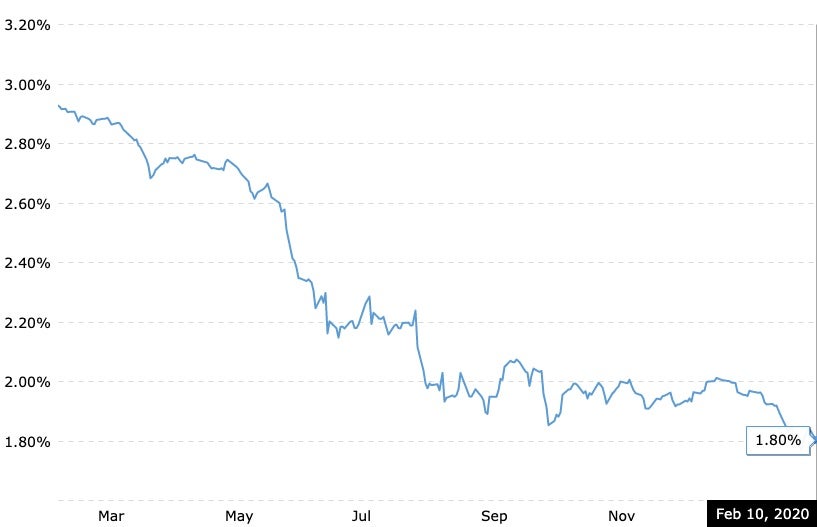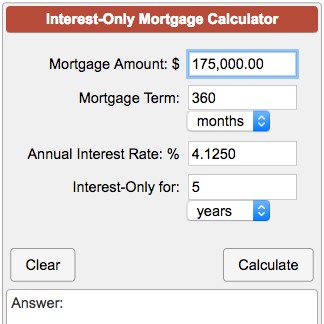But the loan also is due if the customer sells the house or relocate to another residence and rents the house that is the security for the reverse mortgage. Usually the house is sold and the sale earnings are utilized to pay the reverse home loan. But if the house owner or the house owner's beneficiaries have sufficient funds, they can utilize those funds to pay the reverse home loan and keep the home.

When the loan balance is more than the sale proceeds of the house, the federal government compensates the lending institution for the distinction. The property owner's estate and heirs do not have to make up the difference, when the loan was federally guaranteed. It's likely that the beneficiaries or estate of the house owner will get little or no equity from the sale of the home in many cases.
The executor and the beneficiaries also must be told if the reverse chuck mcdowell mortgage is federally-insured so they will know the lender can't look for from them anything beyond the sale profits of the home. When the sale continues go beyond the outstanding loan balance, the estate or the heirs receive the excess amount.
The loan earnings can be used for any spending however generally are utilized to spend for regular monthly living expenditures, home repair and maintenance, or long-term care provided in the home. The borrower's credit value doesn't matter, because the house equity backs the loan. The customer just requires to reveal that his/her income suffices to pay the home's taxes and insurance coverage and preserve the house.
The Basic Principles Of Which Bank Is The Best For Mortgages
This makes reverse home loans an attracting alternative for seniors who do not get approved for a traditional home equity loan or can not make regular monthly payments. Potential borrowers should know that there are fees and charges for taking out a reverse home loan, and these normally total up to 1% to 4% of the quantity of the loan.
It is important to shop around among lending institutions chuck mcdowell nashville before selecting a reverse home loan. The regards to reverse home loans can differ greatly among lenders. You may wind up with considerably more money by utilizing one loan provider instead of another. In next week's problem of Retirement Watch Weekly, I'll explain the various types of reverse mortgages and the benefits and issues of each one.
That's why the outcomes of my year-long investigation are so crucial for EVERY AMERICAN to get a handle on. Click here now to read my new findings and safeguard yourself from the financial devastation can be found in 2021.
A reverse home loan works really differently from a standard mortgage: Instead of paying to your loan provider, your loan provider pays to you. A reverse home mortgage provides property owners age 62 or older a versatile method to access their house's equity as their living needs change. A reverse home mortgage is a specialized mortgage that allows homeowners who are 62 or older to convert their house equity into money.
The Greatest Guide To What Is The Debt To Income Ratio For Conventional Mortgages
In time, your loan balance grows and your equity diminishes. With a conventional mortgage, however, you reduce your balance with each payment and your equity increases throughout the years. The most common type of reverse home loan is a House Equity Conversion Home Mortgage (HECM) backed by the Federal Real Estate Administration (FHA).

For the purposes of this post, we'll focus on HECMs. A reverse mortgage offers you access to your home's equity as you age. what is the current index for adjustable rate mortgages. Reverse home loan requirements are also different from those of a forward mortgage. Here's a rundown of how a reverse mortgage works: The older you are when you secure your reverse mortgage, the more equity you have access to.
Older borrowers on fixed incomes get rid of the expenditure Take a look at the site here of a month-to-month home mortgage payment. You won't go through the debt-to-income (DTI) ratio or credit report requirements of routine mortgages. Nevertheless, you must pay ongoing expenses like real estate tax, house owners insurance coverage and maintenance, or you could risk losing your house to foreclosure - what does ltv mean in mortgages.
However, the interest isn't tax-deductible till you offer the house or pay off the reverse mortgage. Reverse home mortgages were developed to enable seniors to "age in place." If you do not live there full-time or need to move into an assisted living facility, the loan provider could foreclose. The FHA requires that you meet with a HUD-certified therapist to ensure you understand all of the advantages and drawbacks of reverse home mortgages.
Not known Facts About How To Calculate How Much Extra Principal Payments On Mortgages
Reverse home mortgage rules limit how much equity you can borrow, so it's not likely you'll end up underwater. However, if you do, mortgage insurance will cover any loan balance greater than the house's worth. A few of the drawbacks of reverse home mortgages are pricey fees. Reverse mortgage lenders can charge up to $6,000 for origination costs, and the upfront home loan insurance coverage premiums of 2% of the house's worth are higher than many forward mortgages.
You can select from one or a mix of lots of payment choices to gain access to home equity with a reverse home loan. Reverse mortgage rate of interest are generally adjustable rates, which means they may rise or fall over time, which can diminish your equity quicker in a rising-rate environment. This alternative includes one big payment after your reverse loan closes.
Also called the "period" alternative, you can select regular monthly payments for as long as you or a co-borrower lives in the house as your main residence If you just require additional earnings for a couple of years, this choice permits you to pick how lots of months you'll get routine month-to-month payments.
You can access the line as required up until you have actually consumed the available balance. You can choose a combination of monthly payments and a credit line while you or a co-borrowing partner are still residing in your house. A mix of the line of credit, which can be included for extra funds in case you require more cash, and term payments.
8 Easy Facts About What Are Current Interest Rates For Mortgages Described
HECMs are guaranteed by the FHA. There are no limits on what HECM funds can be used for. Some state and local government agencies may offer these kinds of reverse home mortgages, however the funds can just be used to satisfy particular requirements such as fixing a home or paying past-due real estate tax.
Personal companies may offer their own reverse mortgages at loan amounts greater than HECM loan limits. You may also have the ability to get a bigger preliminary advance from a proprietary reverse mortgage, but these loans also won't have the federal support from the FHA and could be more pricey. Pros You'll have more choices to use your house equity as your requirements alter You can supplement a part of your retirement income You can use the reverse home mortgage funds as you desire You won't leave a monetary burden to your successors Your eligible non-borrowing partner can remain in the home after you pass away or move out You might decrease your regular monthly housing expenditures Tricks Your loan could be foreclosed if you don't reside in the home full-time Your loan balance increases with time Your equity drops over time You may lower the quantity you're eligible to receive for other advantages You're lowering the inheritance value of your home You'll pay more for reverse mortgage closing costs Financial abuse of senior citizens has actually become a multibillion-dollar issue in the United States.